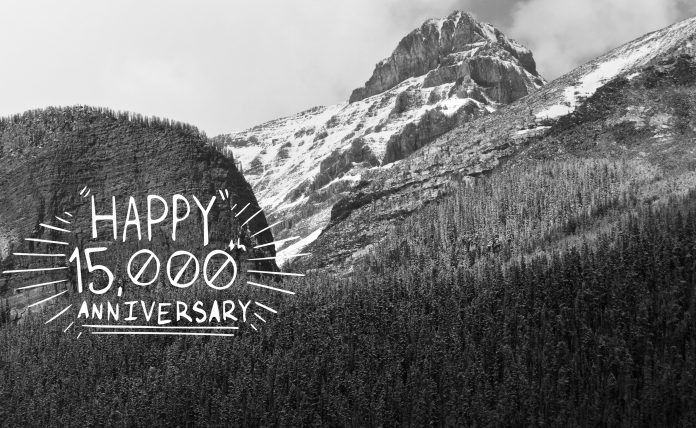Ottawa is spending half a billion dollars on Canada’s sesquicentennial birthday-bash. What’s being celebrated?
It’s been 150 years since the old colonies were merged into the Dominion of Canada — though it was still ultimately subordinate to British rule until the enactment of the Statute of Westminster in 1931, and even still, Canada lacked the power to change its own constitutional laws until 35 years ago. Breaking it down, the anniversary is celebrating the day a fat white lady gave land that wasn’t hers to a bunch of geezers who didn’t work for it, overseen by a drunkard.
What’s actually being celebrated? 150 years of dominion — domination. In 1867 the British North American Act was signed and the new Dominion of Canada was created — Ontario, Quebec (as the province of Canada), Nova Scotia, and New Brunswick joined together. The Canadian Charter of Rights and Freedoms wasn’t created until Canada patriated its Constitution in 1982. The Constitution Act transferred the country’s highest law from British Parliament to Canada’s federal and provincial legislatures.
To some, the celebration of Canada is a celebration of a long history of abuse. Tuberculosis on Indian reserves are at an epidemic level, HIV rates are worse than many African countries, a First Nations youth is more likely to end up in jail than graduate highschool, many reservation homes don’t have sewage services. The list continues.
What’s more is archeological research suggests that parts of Canada have really been inhabited for over 15,000 years. That anniversary has long been forgotten. It’s worth remembering that Canada wouldn’t have 150 years of dominion without having cheated this land’s inhabitants out of their homes.
The #Resistance150 movement is a multimedia campaign created by Anishinaabe traditional storyteller and teacher Isaac Murdoch, Michif visual artist Christi Belcourt, Cree activist Tanya Kappo, and Métis author Maria Campbell. They don’t like the idea of celebrating a history that ignores and mistreated Indigenous peoples.
The project is dedicated to highlighting the many ways Indigenous peoples have historically resisted and continue to resist what they see as discriminatory Canadian policies, “such as those regarding pipeline construction, access to drinking water, and child welfare funding gaps,” according to the CBC.
It’s worth noting that the Royal Proclamation of 1763, issued by King George III, as it is referenced in section 25 of the 1982 Constitution Act, stipulates that any land not ceded or purchased from First Nations still belongs to them — that means most of British Columbia is illegally occupied under our own laws. You could make the argument that it has long been “won.” You could say that the world has been conquered dozens of times over by different armies and nations, what makes Canada different? Our own laws do.
The lack of enthusiasm for celebrating 150 years doesn’t stop with Indigenous issues. In terms of foreign policy, many argue that intervention in the Middle East since the Gulf War has caused more harm than good. And while Ottawa thought it useful to bring “stability” to oil-rich countries, in South Sudan, West Papua, Burma, and the Democratic Republic of the Congo, genocide rages onward and civil unrest doesn’t come close to defining what’s the norm for millions of people. The DRC conflict, for example, is the deadliest since WWII, with death rates estimated at three to five million.
Like all things, it’s good to think about the reason for doing it. That stands regardless of where you do on these issues.
If you’re going to celebrate, celebrate 150 years as 150 years of trying to figure things out. Canada’s history includes slavery, racism, eugenics programs, genocide, and concentration camps. We haven’t figured it all out yet, and we’re bound to make a lot more mistakes. Don’t forget that here in the Fraser Valley, or S’ólh Téméxw, we should also celebrate a tradition of over 10,000 years — some of the things we don’t know might have once already been known, before we paved over it.


